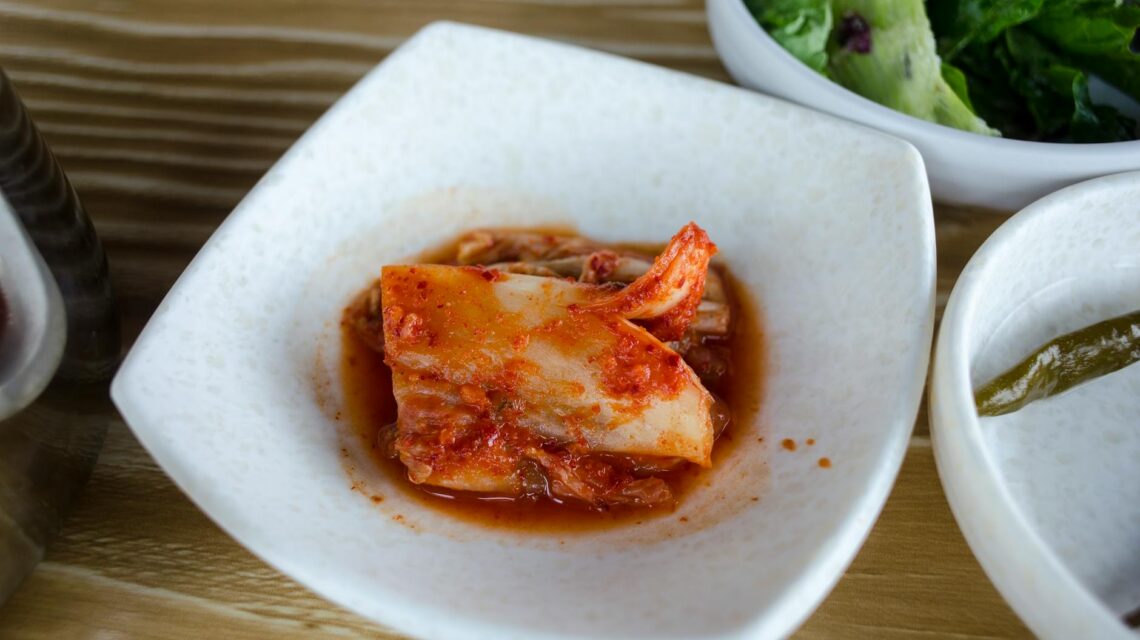Your Gut is Talking. Are You Listening?
Ever have one of those days where you just feel… off? Maybe it’s a bit of bloating, some sluggishness you can’t shake, or a general sense of unease. We often blame lack of sleep or stress, and while those are definitely factors, the root cause might be deeper. Much deeper. It might be coming from your gut.
It sounds a bit strange, but modern science is confirming what ancient wisdom has hinted at for centuries: a happy gut is the foundation for a happy, healthy body. Think of your gut not just as a digestive tube, but as a bustling, vibrant ecosystem. It’s a complex world teeming with trillions of microorganisms—bacteria, fungi, and viruses—all living together. This community is called your gut microbiome, and its balance is critical to everything from how you digest your lunch to how you feel when you wake up in the morning. When this delicate ecosystem gets thrown out of whack, you feel it. That’s where our tiny heroes come in: probiotics. The role of probiotics in gut health isn’t just a wellness trend; it’s about actively nurturing this internal garden to help you thrive from the inside out.
Key Takeaways
- Probiotics are live, beneficial bacteria that support the health of your gut microbiome.
- They work by balancing your gut flora, strengthening the gut wall, and supporting your immune system.
- Key benefits include improved digestion, enhanced immunity, and even a positive impact on mental health through the gut-brain axis.
- You can get probiotics from fermented foods like yogurt, kefir, and kimchi, as well as from targeted supplements.
- Consistency is key. Incorporating probiotics into your daily routine is the best way to see and feel the benefits.
What Exactly *Are* Probiotics, Anyway?
Let’s clear things up. The word “bacteria” often gets a bad rap. We associate it with germs, sickness, and a need for hand sanitizer. But that’s only one side of the story. Your body is home to a vast number of bacteria, and the vast majority are either harmless or incredibly helpful. Probiotics fall squarely into the “incredibly helpful” category.
The official definition is that probiotics are “live microorganisms that, when administered in adequate amounts, confer a health benefit on the host.” In simpler terms? They’re the good guys. They’re the friendly bacteria that you want to have in your corner, and more specifically, in your gut.
The Classic Tale: Good vs. Bad Bacteria
Imagine your gut is a garden. In this garden, you want beautiful flowers, hearty vegetables, and lush greenery to flourish. These are your beneficial bacteria (probiotics). They help you break down food, absorb nutrients, and produce essential vitamins. But every garden also has weeds. These are the pathogenic, or “bad,” bacteria. A few weeds here and there aren’t a big deal; a healthy garden can handle them. The problem arises when the weeds start to take over. This imbalance, known as dysbiosis, is when the bad bacteria outnumber the good. This can happen due to a poor diet high in sugar and processed foods, a round of antibiotics (which can be like a wildfire, wiping out both good and bad), chronic stress, or illness. Dysbiosis is where a lot of those vague feelings of being “off” come from—bloating, gas, constipation, and even things you wouldn’t expect, like skin issues and mood swings. Probiotics are like dedicated gardeners. They help re-seed your gut with beneficial flora, crowding out the weeds and restoring that healthy, vibrant balance.
Meet the Most Common Probiotic All-Stars
The world of probiotics is vast, with countless different strains, each with its own unique set of skills. You don’t need to be a microbiologist to understand them, but knowing a few of the main players can help you choose the right foods and supplements. Most fall into two main groups:
- Lactobacillus: This is probably the most famous probiotic. It’s the one you find in yogurt and other fermented dairy products. Different strains of Lactobacillus are fantastic for helping with lactose digestion and can be real heroes for managing issues like diarrhea. They primarily live in your small intestine.
- Bifidobacterium: These guys are typically found in your large intestine. They’re powerhouse defenders, helping to support the immune system, limit the growth of undesirable bacteria, and help break down fiber that your body can’t digest on its own. They are crucial for producing important short-chain fatty acids (SCFAs) that keep your colon healthy.
- Saccharomyces boulardii: Here’s a fun fact—this one is actually a beneficial yeast, not a bacterium. It works differently but is incredibly effective, particularly for combating traveler’s diarrhea and issues related to antibiotic use. It acts as a placeholder, keeping the peace in your gut while your natural good bacteria recover.
How Probiotics Work Their Magic in Your Gut
So we know they’re good for us, but what are they actually *doing* down there? It’s not as simple as just adding more soldiers to your army. Their work is a sophisticated, multi-faceted operation that profoundly impacts your overall health.
First, it’s a numbers game. Your gut is prime real estate, and both good and bad bacteria are constantly competing for space and resources. By introducing more probiotics, you’re essentially reinforcing the good guys, helping them colonize the intestinal walls and leaving less room for the troublemakers to set up shop. They literally crowd out the bad guys.
Second, they strengthen your defenses. Your gut lining is an incredibly important barrier, just one cell thick. It’s designed to let beneficial nutrients pass into your bloodstream while keeping toxins, undigested food particles, and pathogens out. When this barrier gets compromised—a condition often called “leaky gut”—it can trigger inflammation throughout the body. Probiotics help to strengthen the junctions between these cells, essentially reinforcing the gate and ensuring it stays strong and selective.
Finally, they’re little chemical factories. As probiotics feast on the fiber in your diet (prebiotics, which we’ll get to later!), they produce amazing compounds called short-chain fatty acids, like butyrate. Butyrate is the primary fuel source for the cells lining your colon, keeping them healthy and strong. They also help produce vitamins like B12 and K, and even influence the production of neurotransmitters. That’s right—chemicals that affect your mood.
The Science-Backed Benefits of Probiotics in Gut Health
This isn’t just guesswork; a growing mountain of scientific research supports the powerful role of probiotics. From your stomach to your brain, the benefits are wide-ranging and interconnected.
Boosting Digestive Harmony
This is the most well-known benefit, and for good reason. If you struggle with common digestive complaints, probiotics can be a game-changer. They help regulate bowel movements, making them a powerful tool against both constipation and diarrhea. For those with Irritable Bowel Syndrome (IBS), a condition that can cause a frustrating mix of bloating, gas, pain, and unpredictable bathroom habits, certain probiotic strains have been shown to significantly reduce the severity of symptoms. They help restore a sense of calm and predictability to a system that feels chaotic.
Strengthening Your Immune System
Did you know that roughly 70-80% of your immune system is located in your gut? It’s called the GALT, or Gut-Associated Lymphoid Tissue. This makes your gut the body’s first line of defense against invading pathogens. A healthy, balanced microbiome helps to “train” your immune cells, teaching them to distinguish between friend and foe. When your gut flora is robust, your immune system is more balanced and responsive. This means you might get sick less often, and when you do, you may recover more quickly. Probiotics have been shown to enhance the production of natural antibodies and regulate the activity of immune cells, keeping your defenses sharp.
The Surprising Gut-Brain Connection
This is one of the most exciting frontiers in medical research. The gut and brain are in constant communication via a network of nerves, hormones, and chemical signals known as the gut-brain axis. Your gut is often called the “second brain,” and for good reason—it’s lined with millions of nerve cells and produces a huge amount of neurotransmitters, the chemical messengers that govern your mood. In fact, over 90% of your body’s serotonin, the “feel-good” neurotransmitter, is produced in your gut. A gut in a state of dysbiosis can’t do this job effectively, which can contribute to feelings of anxiety, depression, and brain fog. By restoring balance with probiotics, you’re not just helping your digestion; you’re directly supporting your mental and emotional well-being. It’s a profound connection that highlights just how central gut health is to your entire being.
Other Potential Perks
The research continues to expand, linking a healthy microbiome to even more benefits. Some studies suggest probiotics can help manage skin conditions like eczema by reducing systemic inflammation. Others point to a role in maintaining vaginal health by balancing the vaginal microbiome. There’s also emerging research into the connection between gut bacteria and weight management, suggesting that certain strains might influence how your body stores fat and regulates appetite. While more research is needed in these areas, the evidence strongly suggests that the positive influence of a healthy gut ripples outward to nearly every system in the body.
How to Get More Probiotics into Your Life
Alright, you’re convinced. You’re ready to invite these beneficial microbes to the party. The good news is, it’s easier than you think. You have two main avenues: food and supplements.
Food First: The Best Probiotic Sources
The most natural and often most delicious way to get your daily dose of probiotics is through fermented foods. The process of fermentation encourages the growth of beneficial bacteria. Look for these fantastic options:
- Yogurt: The classic choice. Look for brands that say “live and active cultures” on the label. Plain, unsweetened yogurt is best to avoid feeding the bad bacteria with sugar.
- Kefir: Think of it as a drinkable, more potent version of yogurt. It often contains a wider variety of bacterial strains and beneficial yeasts.
- Sauerkraut: Fermented cabbage. It’s important to buy the refrigerated kind, as shelf-stable versions are pasteurized, which kills the live bacteria.
- Kimchi: A spicy Korean staple, usually made from fermented cabbage and other vegetables. It’s packed with a unique strain of Lactobacillus.
- Miso: A fermented soybean paste used in Japanese cuisine, most famously in miso soup.
- Kombucha: A fermented tea that has a fizzy, slightly sour taste. Be mindful of the sugar content in some commercial brands.

Navigating the World of Probiotic Supplements
While food is a great starting point, sometimes a supplement can provide a more targeted and potent dose, especially if you’re dealing with a specific health issue or have just finished a course of antibiotics. The supplement aisle can be overwhelming, so here’s what to look for:
- CFU Count: Colony-Forming Units indicate the number of viable bacteria in a dose. Look for products with at least 1 billion CFUs, though many high-quality supplements range from 15 to 100 billion.
- Strain Diversity: A supplement with multiple strains (like a mix of Lactobacillus and Bifidobacterium) is often more beneficial than one with a single strain, as it populates different areas of your gut.
- Survivability: The bacteria need to survive the harsh, acidic environment of your stomach to make it to your intestines. Look for brands that use delayed-release capsules or specific strains known for their hardiness.
- Third-Party Testing: Because supplements aren’t tightly regulated, choose brands that are voluntarily tested by a third party (like NSF or USP) to ensure purity and potency.
Probiotics vs. Prebiotics: The Dynamic Duo
You may have also heard the term “prebiotics.” It’s easy to get them confused, but the difference is simple and important. If probiotics are the seeds you’re planting in your gut garden, prebiotics are the fertilizer.
Prebiotics are a special type of dietary fiber that your body can’t digest. Instead, they travel down to your large intestine where they become the perfect food source for your beneficial probiotic bacteria. Feeding these good microbes helps them grow, multiply, and thrive. You can find prebiotics in many high-fiber foods, such as garlic, onions, leeks, asparagus, bananas (especially slightly green ones), and whole grains. A diet rich in both probiotics and prebiotics—what’s sometimes called a synbiotic approach—is the ultimate way to support your microbiome.
Conclusion: Your Gut Health Journey Starts Now
Your gut microbiome is a fundamental pillar of your overall health, influencing everything from your digestion and immunity to your mood and mental clarity. It’s not an exaggeration to say that nurturing this internal ecosystem is one of the most powerful things you can do for your well-being. Probiotics are not a magic pill, but they are an incredibly powerful tool. They are your allies in the quest for balance.
Whether you start by adding a dollop of kefir to your morning smoothie or choosing a high-quality supplement, you’re taking a proactive step toward better health. The journey starts with a single choice. So listen to your gut—it’s telling you what it needs. Start today, stay consistent, and you’ll be well on your way to feeling your absolute best, from the inside out.
FAQ
How long does it take for probiotics to start working?
It really varies from person to person and depends on your starting gut health. Some people might notice improvements in digestion, like reduced bloating, within a few days. For more systemic benefits, like improved immunity or mood, it’s best to be patient. Give it at least 2 to 4 weeks of consistent daily use to allow the beneficial bacteria time to colonize and start making a difference.
Are there any side effects of taking probiotics?
For most people, probiotics are very safe. When you first start taking them, you might experience some temporary mild side effects like gas, bloating, or an upset stomach. This is often a sign that your gut microbiome is adjusting to the new arrivals. These symptoms usually subside within a few days. If they persist, you might want to try a lower dose or a different strain.
Should I take probiotics every day?
Yes, consistency is key. Probiotics aren’t a permanent fix; many of them are transient and pass through your system. Taking them daily, either through food or a supplement, helps maintain a healthy population of beneficial bacteria in your gut and ensures you’re consistently reaping the benefits.



 How to Meal Prep for the Week: A Beginner’s Guide
How to Meal Prep for the Week: A Beginner’s Guide  Top Foods That Reduce Inflammation: An Easy Guide
Top Foods That Reduce Inflammation: An Easy Guide  Food Allergies vs. Intolerance: What’s the Difference?
Food Allergies vs. Intolerance: What’s the Difference?  Healthy Smoothie Recipes for Weight Loss You’ll Love
Healthy Smoothie Recipes for Weight Loss You’ll Love  Foods That Reduce Inflammation: Your Ultimate Guide
Foods That Reduce Inflammation: Your Ultimate Guide  Foods That Help You Sleep: Your Ultimate Guide
Foods That Help You Sleep: Your Ultimate Guide  Backtest Crypto Trading Strategies: A Complete Guide
Backtest Crypto Trading Strategies: A Complete Guide  NFT Standards: A Cross-Chain Guide for Creators & Collectors
NFT Standards: A Cross-Chain Guide for Creators & Collectors  Decentralized Storage: IPFS & Arweave Explained Simply
Decentralized Storage: IPFS & Arweave Explained Simply  How to Calculate Cryptocurrency Taxes: A Simple Guide
How to Calculate Cryptocurrency Taxes: A Simple Guide  Your Guide to Music NFTs & Top Platforms for 2024
Your Guide to Music NFTs & Top Platforms for 2024  TradingView for Crypto: The Ultimate Trader’s Guide
TradingView for Crypto: The Ultimate Trader’s Guide